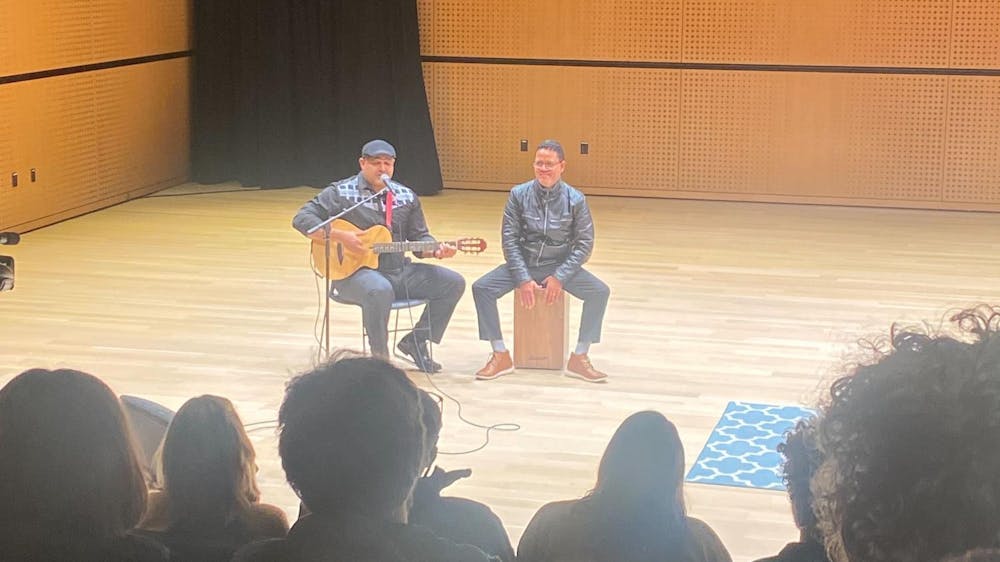On Saturday night, the Brown Arts Institute kicked off its month-long celebration “Kriolu Voices Sounding: Cabo Verdean/American Music and Politics in Rhode Island.” The series of events, featuring musicians, social advocates, community organizers and more, highlight Cabo Verdean culture and scholarship.
The series was organized by Ruby Erickson MA ’23, a doctoral student in musicology and ethnomusicology, and Allessandra Soares, an academic program coordinator at the Watson Institute for International and Public Affairs and executive director of Capeverdean American Community Development.
According to Erickson, plans for “Kriolu Voices Sounding” began in fall 2022.
“I had joined the Music Department DIAP Committee, and we were looking for ways to connect the music department more with local communities,” Erickson wrote in an email to The Herald. “I had also just finished a summer of music-making, voice lessons and podcasting with Cape Verdean Americans in Rhode Island and Massachusetts for my M.A.”
“I was connected with Allessandra, and we immediately started thinking about ways to highlight Cape Verdean presence … that crossed community/university boundaries,” Erickson added.
The celebration began with a discussion panel and a body percussion workshop titled “Reparations and Representations: Re-Sounding Cape Verdean Musics in Fox Point” featuring musician Perry Lee “Tiny” Tavares and Tufts University Professor Silas Pinto.
The event focused on the Cabo Verdean immigration to Fox Point, which eventually faced displacement and gentrification. Today, Fox Point remains the location of the annual Cape Verdean Independence Day Festival.
Tavares, who had lived in Fox Point as a young boy, spoke about unfairly enforced restrictions that prevented his family from developing their property. These restrictions eventually forced them to move away from Fox Point. According to him, white members of the community later developed his land with granted permission from the city, which he did not receive.
The discussion progressed into the unique music created by the Fox Point Cape Verdean community. Tavares spoke about how his father’s own variations of Cape Verdean music are evidence of how Fox Point created its own “soundscape..”
For Pinto, old and new Cape Verdean musical traditions were combined in Fox Point, pushing “musical boundaries.”
The panelists also discussed reparations for the Cape Verdean Fox Point community. In 2022, former mayor Jorge Elorza provided $10 million for reparations projects, which included direct “support (for) Black and Native American residents displaced and negatively impacted by urban renewal.”
Pinto also presented a song he had written and audience members danced to the tunes of Cape Verdean music.
Erickson wrote that she hopes these events get “Brown University members who have never heard of Cape Verdean Americans to get interested and invested in communities beyond their own campus.”
“It is an ethical imperative to connect with the community that surrounds you, because you are not well unless your extended self — that is, your community — is thriving,” Pinto said.
Correction: A previous version of the article misattributed the final quote to Ruby Erickson. The photo caption also incorrectly suggested that Perry Lee "Tiny" Tavares was pictured; the photo instead depicts Silas Pinto and J.L. Santos Spencer. The Herald regrets the errors.
Dennis Carey is a Sports editor who enjoys playing volleyball, listening to and collecting vinyl records and poorly playing the guitar in his spare time.





